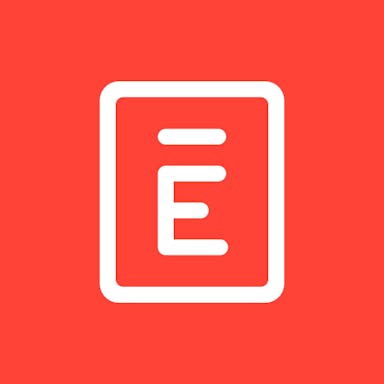Thesis
The ongoing shift to hybrid work in a post-COVID world appears not to be just a temporary trend but a structural change in how companies operate. Only 20% of remote-capable employees currently work entirely on-site, down from 60% in 2019. And over 70% of firms, from startups to multinational conglomerates, plan to implement some form of hybrid working arrangements. This shift has been felt acutely in previously busy city centers, with NYC Mayor Eric Adams imploring white-collar employees to return to office. As organizations globally adapt to this change, the physical office space and workplace experience are now being redefined. While remote and hybrid work have proven beneficial in many ways, such as cost savings, increased productivity, and greater flexibility for employees, it has also presented challenges in collaboration, company culture, and spontaneous innovation.
In navigating the hybrid work landscape, companies are now contending with new concepts like hot-desking and anchor days. These innovations aim to maximize space utility and foster collaboration when employees are in-office but can complicate workplace management. The challenge lies in balancing a flexible, hybrid work environment with the logistics of effective workplace utilization. Organizations must understand their space requirements in real time, optimizing for both in-person collaboration days and remote work periods. Furthermore, the intricacies of hybrid work mean companies need data-driven insights into how employees are using spaces and amenities, ensuring that offices remain conducive to productivity and employee well-being while avoiding underutilization. In this new era, the future of office space management hinges on real-time adaptability and foresight, making the sector ripe for innovation and growth.
Addressing these complexities, Envoy is a workplace solutions company looking to streamline the hybrid work experience for both employers and employees. After navigating the COVID-19 pandemic that threatened the company’s primary product, visitor management for offices, Envoy now offers a software platform that gives organizations tools to effectively manage their workspaces. By offering tools that capture workspace usage patterns and enable employees to transition between in-office and remote working, Envoy enables companies to adapt their spaces dynamically, ensuring they remain responsive to the evolving needs of a hybrid workforce. As hybrid work continues to grow in popularity, companies will require increasingly sophisticated tools like those offered by Envoy to effectively manage their hybrid workplaces.
Founding Story
Founded in 2013 by Larry Gadea (CEO), Gadea's path to founding Envoy wasn't conventional. Beginning programming at age 8, Gadea’s development of a plugin for Google Desktop Search put him on the radar of the tech conglomerate, where he worked as a part-time intern throughout college. Post-graduation, eager for a new challenge, Gadea joined Twitter with a referral from his boss at Google. After working the next couple of years as a backend engineer to scale Twitter’s systems, he noticed a problem with visitor management systems after visiting friends at other tech companies which inspired him to pursue his own startup.

Source: Envoy
What Gadea noticed was that while large tech companies could afford to have their engineers build in-house visitor management software, smaller companies were left behind, often compromising their security. The fact that large tech companies were willing to assign engineers to build an in-house solution meant that visitor management was something important, but no good solution existed for SMBs.
Recognizing this gap, Gadea gathered a founding team of four and quickly built and launched a white-label visitor management system in 2013, available through the Apple App Store as a one-time $19.99 purchase. The app facilitated office check-ins through an iPad app, including features like printing photo name tags. Envoy's product quickly gained traction, soon securing over 1K offices as clients—including notable names like Airbnb, Pandora, GoPro, and Tesla—primarily through word-of-mouth.
Product
While Envoy initially focused on a visitor management system for workplaces, which remains the company’s flagship offering, the startup now offers a suite of building management products for a variety of customers.
Visitors
Envoy Visitors is a front desk solution that enables businesses to manage visitors entering the workplace. Described as “supercharging the front desk,” the Visitors product provides businesses with relevant features that enable them to track/monitor visitors, streamline the visitor experience, and customize the white-label product with the company’s branding.
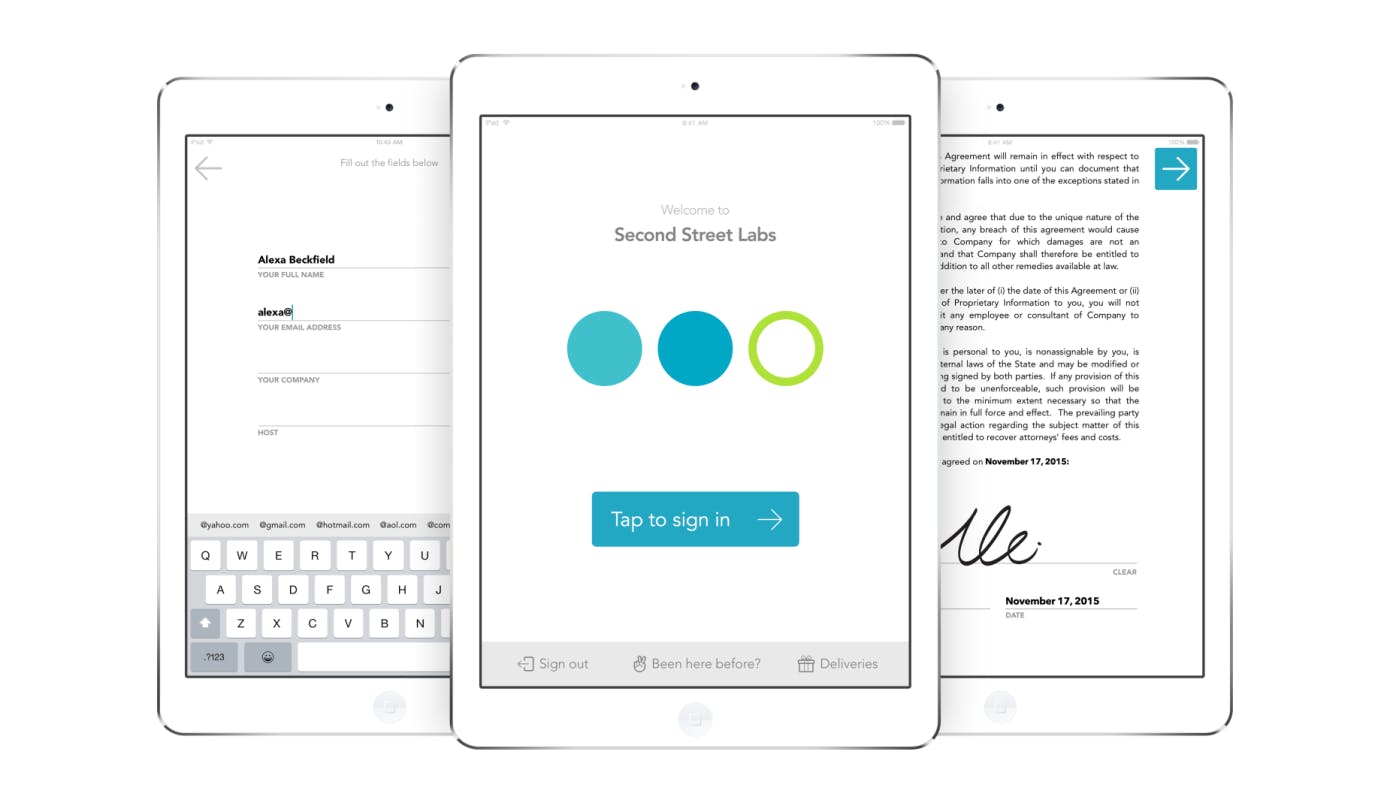
Source: TechCrunch
Notable features that are part of the Envoy Visitors product include:
Sign-in kiosk: A front desk solution that replaces paper logs with a touch-screen interface that allows visitors to sign in with a customizable sign-in flow and company branding.
Visitor management: A suite of tools allowing businesses to track and manage visitor details, from time of entry to purpose of visit. Includes capabilities like visitor badge printing, notifications to visitor hosts, and legal documents.
Security and compliance: Allows for the storing of signed agreements and other compliance-related documentation digitally, providing an audit trail for adherence to regulatory requirements.
Account management: Enables businesses to customize and control their user permissions, directory access, and multi-office needs from multiple locations. Envoy stores this data in the cloud which provides features like directory syncing, unified sign-in flows, and visiting analytics.
Integrations: Envoy integrates with popular enterprise tools for directory, notification, file sharing, and other needs. Examples include syncing with an employee directory in Rippling, alerting an employee that their visitor has arrived over Slack, and automatically uploading signed legal documents to Box.
Connect
Envoy Connect is a multi-tenant visitor management platform for property owners. Aimed at optimizing both security and user experience, it centralizes the visitor registration process into Envoy’s platform. Connect allows property administrators or building security to monitor visitor approval status and grant visitor access into designated areas, provides screening against a property-defined blocklist, and integrates with existing systems used for access control and background checks.
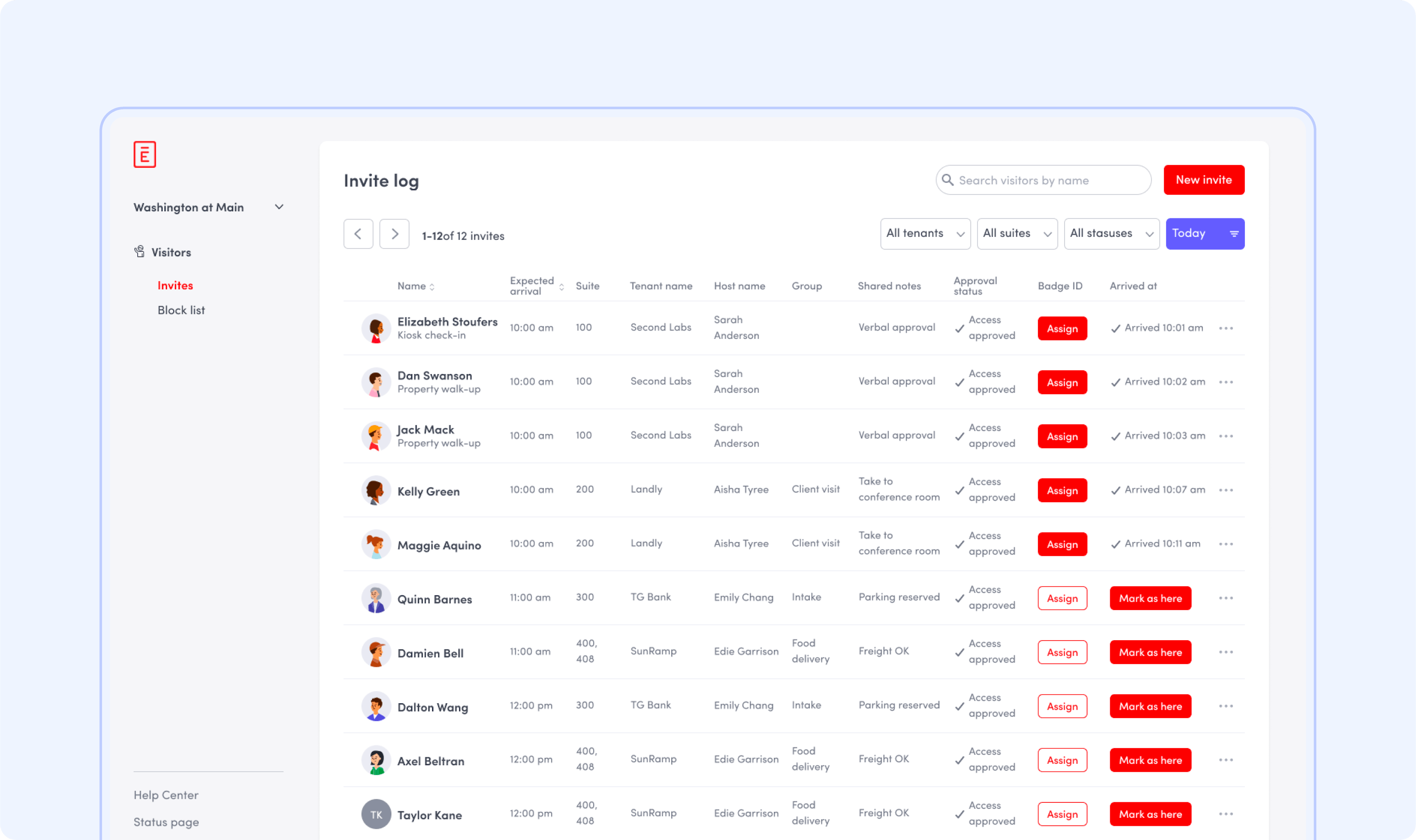
Source: Envoy
Key features of Envoy Connect include:
Security console: Cloud-based console that provides building security with screening tools to check in every visitor.
Instant notifications: Notify visitor hosts inside of the building that their guests have arrived at the lobby via email, Slack, or other communication tools.
Visitor log: Digital record of all property visitors for auditing and compliance.
Property-wide blocklist: Screens all potential visitors against a property-defined blocklist of individuals.
Security integrations: Integrates with existing security systems for access control, background checks, Wi-Fi access, and more.
Workplace
Envoy Workplace is a software platform that helps businesses manage their workplace needs. It centralizes a suite of tools that allow businesses to manage rooms, desks, and deliveries inside of their workplace.
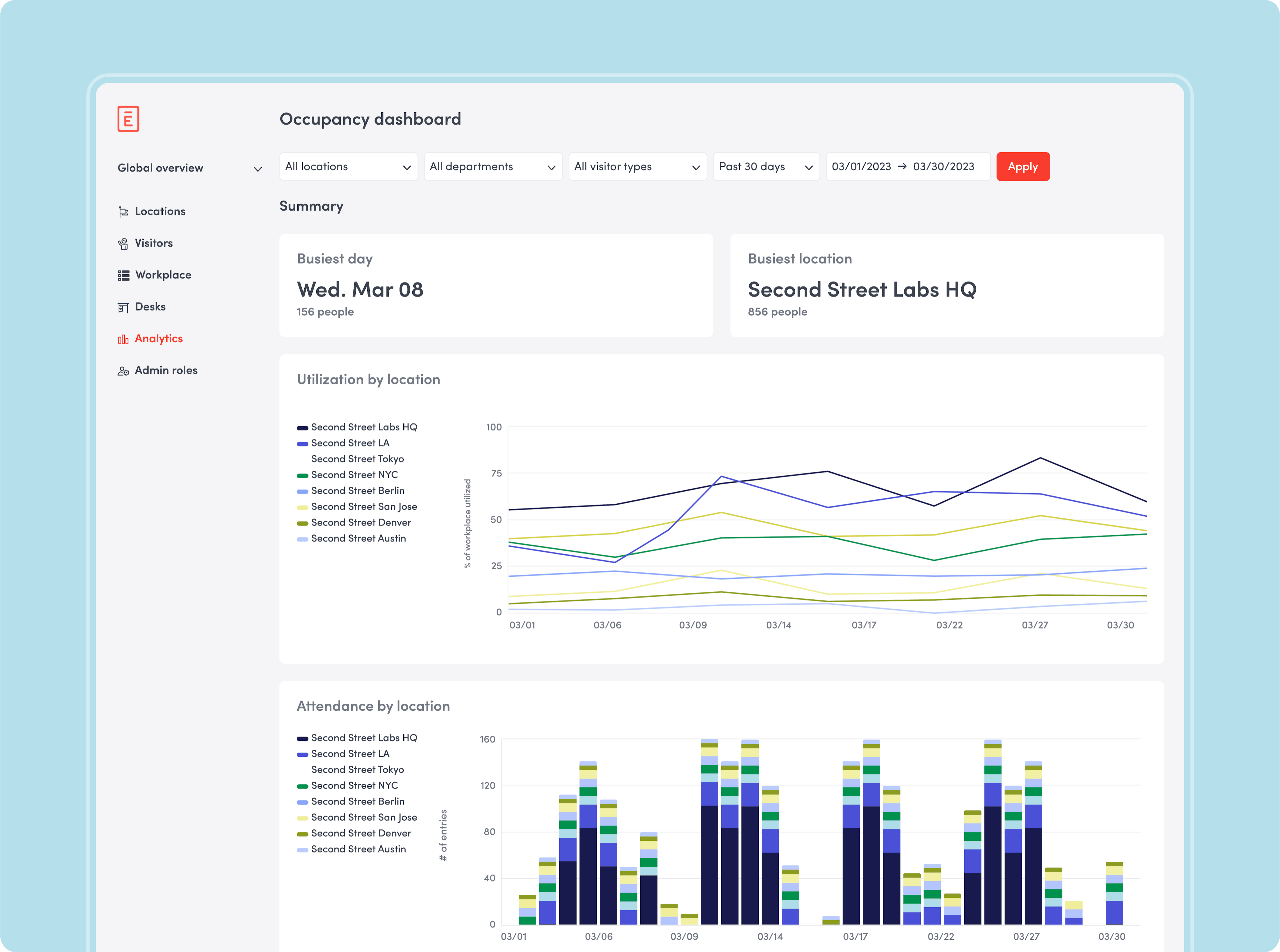
Source: Envoy
Rooms: Streamlines the process of finding and reserving conference rooms. With automated reminders, attendees are notified of upcoming meetings to improve room utilization. By tapping into room usage analytics, companies can make informed decisions on space allocation and property investments.
Desks: Enables employees to reserve desks for concentrated tasks or team activities. Supports different configurations like permanent seating, hot desks, or desk blocks for teams.
Deliveries: Simplifies package handling by allowing businesses to scan incoming parcels and notify recipients. The system maintains delivery logs and helps businesses ensure that packages reach their intended recipients in the workplace.
Market
Customer
Envoy primarily targets businesses keen on streamlining office experiences and enhancing security at entry points. At the core of Envoy's customer profile are businesses with a substantial influx of visitors, from contractors to clients, and those adopting flexible or hybrid work models. This includes technology companies, corporate offices, educational institutions, and co-working spaces. Often, these entities prioritize creating a seamless, technologically advanced, and brand-aligned first impression for guests. Facilities managers and office administrators, usually the gatekeepers of office logistics, champion the adoption of solutions like Envoy to ease their workflow.
The digital transformation wave, especially after the pandemic, has made firms more receptive to tech-based visitor management systems. Furthermore, as the health and safety of both employees and visitors have become paramount, organizations are increasingly searching for touchless sign-in solutions, health-screening integrations, and automated visitor notifications. Apart from larger corporations, Envoy’s original customer base included emerging startups and mid-sized businesses that were looking for an effective front-desk experience, but could not afford to build one in-house.
With the introduction of Envoy’s Connect product, Envoy has also started targeting property owners and property management customers with multi-tenant buildings. The ideal customer profiles for Envoy’s Connect product are property owners with large, multi-tenant buildings like skyscrapers who typically have large volumes of guests and visitors.
Market Size
The integrated workplace management market, which encompasses tools for visitor management, room booking, and workplace safety, was valued at $3.82 billion in 2021 and is projected to reach $7.85 billion by 2027, translating to a 12.8% CAGR throughout the period. Key market drivers include (1) the increasing need for streamlined office operations in a post-pandemic era, (2) the rising demand for touchless solutions amidst heightened health concerns, and (3) the growth of hybrid work models necessitating enhanced room and resource booking systems as well as the need for “hot desks.”
While Envoy’s Connect product is focused on the visitor management experience for property owners, the product represents Envoy’s first foray into the broader property management software market. This market was valued at $3.04 billion in 2021 by Grand View Research and is projected to grow with a 5.6% CAGR to $4.85 billion by 2030,
Competition
Verkada: Launched in 2016, Verkada emerged as a tech-centric enterprise security company, specializing in building security through cloud-based camera systems. With over $343 million raised as of 2023, in August of that year, Verkada combined its visitor and mailroom management into Verkada Workplace. Verkada’s Workplace product focuses on keeping track of visitors and packages entering a workplace’s facilities and natively integrates with Verkada’s suite of video security and access control products.
Claiming over 17K customers as of August 2023, the popularity of Verkada’s video security and access control offerings make its Workplace product a competitor to Envoy’s Visitors and Workplace offerings. As Verkada continues to grow and expand into more integrated office solutions, its offerings could begin to rival traditional visitor management systems, posing a potential challenge to Envoy's market position. Verkada raised a Series D in September 2022 that valued the company at $3.2 billion.
WeWork: Founded in 2010, WeWork is a company best known for providing shared workspace solutions. But beyond just offering office spaces for rent, WeWork has ventured into tech solutions to enhance workplace experiences, including visitor management systems. Branded as WeWork Workspace, the space management software enables businesses to manage both WeWork and privately owned workspaces to provide features like meeting room reservations, hot-desking, and workspace analytics.
This product partially competes with Envoy’s own Workplace product and is targeted toward companies looking to manage a hybrid work experience, with some locations having dedicated offices and satellite locations using WeWork. The company went public in October 2021 through a SPAC but filed for bankruptcy in November 2023 with concerns about its ability to operate, its strong brand recognition coupled with a software product targeting the hybrid workspace could allow it to emerge as a strong competitor to Envoy.
Honeywell: An industrial conglomerate with a history stretching back over a century, Honeywell has a substantial footprint in building management and security systems. In 2020, Honeywell acquired Sine Group, a company offering mobile workforce management solutions. This acquisition led to Honeywell Sine, a visitor management solution targeted at businesses and property owners.
Honeywell Sine directly competes with Envoy’s suite of products and counts enterprises like General Electric, Mazda, and Canon among its customers. With Honeywell offering a diversified suite of Building Technologies products, the company’s longstanding reputation and ability to integrate Sine with other relevant Honeywell building management products make it a potential competitor to Envoy in the enterprise market. As of November 2023, the market cap of Honeywell was $129 billion.
Business Model
Envoy operates on a tiered subscription model tailored to various organizational needs, offering a range of services related to visitor management, room booking, and workplace safety. Each of Envoy’s products has its own subscription pricing, allowing businesses to choose which Envoy services they wish to purchase.
The pricing for Envoy’s Visitor product is based on the number of locations, with the following subscription tiers:
The "Basic" plan which is free, offers a limited number of features like host notifications and is intended for small workspaces needing simple visitor management.
The "Standard" plan, priced at $131 per location per month, extends upon the Basic plan by adding features like badge printing and legal document signing.
The “Premium” plan priced at $395 includes a rich set of features targeting companies with multiple locations. These features include customized branding, visitor photos, visitor analytics, and employee directory integration.
The "Enterprise" plan is tailored for larger enterprises requiring advanced features and integrations. This tier incorporates blocklists, guest Wi-Fi, and access control integrations. Pricing for this plan is not publicly available.
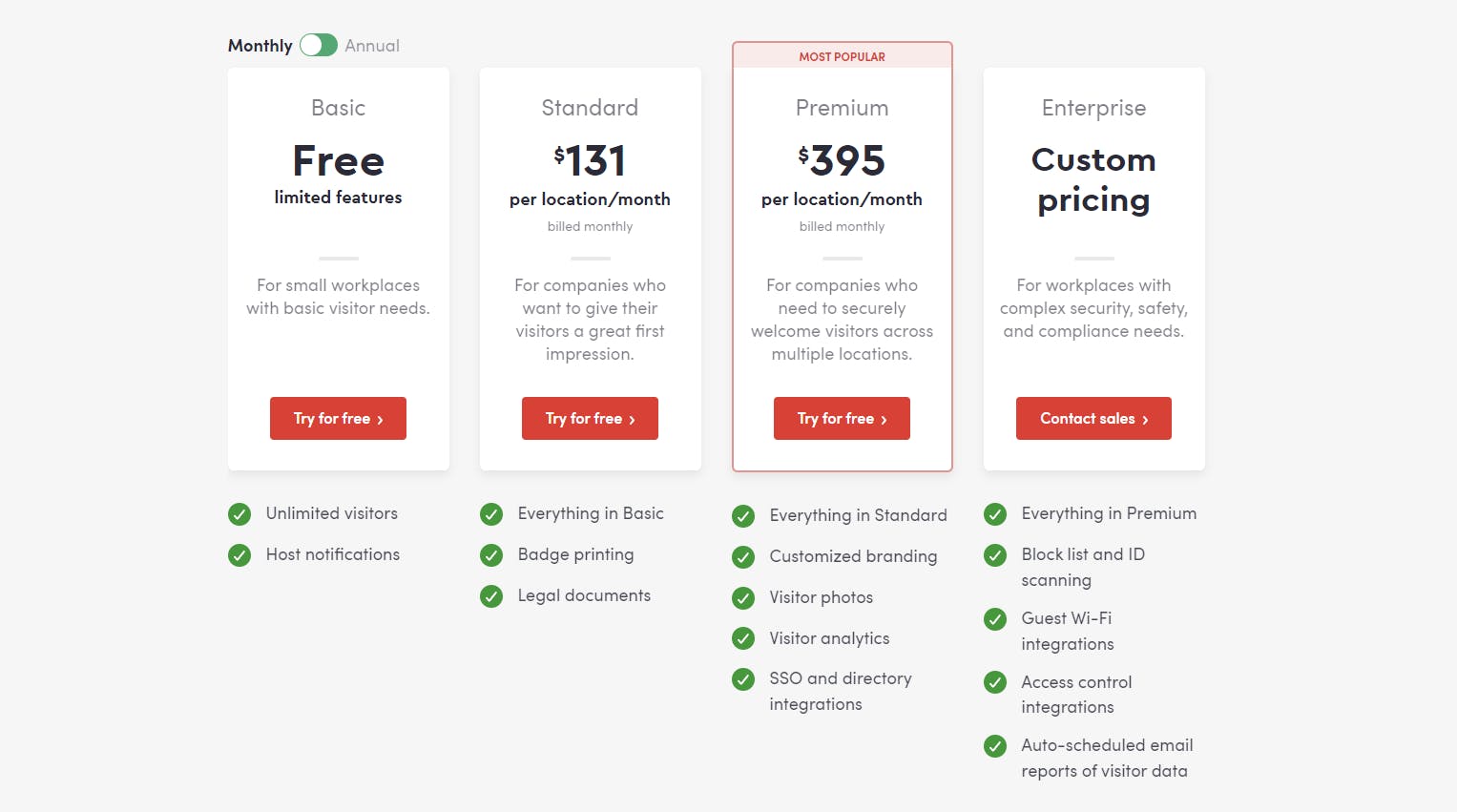
Source: Envoy
Envoy’s Workplace product is priced per the number of active users per month. There are two available pricing tiers for the Workplace product as of November 2023:
The “Standard” plan costs $3 per active user per month and includes basic features like workplace maps, scheduling, package tracking, and integrations with common tools like Slack and Outlook.
The “Premium” plan costs $5 per active user per month and includes everything available in the “Standard” plan. In addition, this plan includes conference room and desk booking, occupancy analytics, and health and safety controls.
No publicly available pricing is available for Envoy’s Connect product and interested customers must reach out to Envoy’s sales team on their website.
Traction
Envoy has found significant traction since its inception, propelled by its flagship product, Envoy Visitor. In 2014, within a year of launching, Envoy reported over 250 customers including high-profile names like Lyft, Pixar, Palantir, and Yelp. A year later, that number quadrupled to over 1K, with Gadea reporting only 10-20 customers churning. By 2018 the startup reported that number had increased to over 10K, with Envoy products being used to check in more than 100K visitors into workspaces daily, with notable customers like Airbnb, Stripe, and Slack.

Source: Envoy
Despite Envoy’s steady growth, the COVID-19 pandemic upended the startup’s business model. For a company whose core competency was managing visitors into workspaces, quarantine and work-from-home forced the startup to pivot. Noting an opportunity to help facilitate safe, effective return-to-office experiences, the company launched Envoy Protect. This workplace platform enabled businesses to help employees safely return to office with features like health questionnaires, touchless sign-in codes, contact tracing, and integrated temperature screening.
The product found traction with over 5K organizations signing up in a matter of months. Envoy claimed that the surge of interest in Envoy Protect, which eventually turned into Envoy Workplace, drove more revenue in 2021 than in 2019 and 2020 combined. In their January 2022 Series C announcement, Gadea stated that Envoy had over 7K customers using the company’s products.
Valuation
In January 2022, Envoy secured $111 million in a Series C round led by Brookfield Growth, placing the workplace solutions provider's valuation at $1.4 billion. Other key investors in the round included Andreessen Horowitz, Menlo Ventures, Initialized Capital, and Elad Gil. With this latest financing, Envoy's total funds raised amount to $170 million as of August 2023.
Key Opportunities
Event Management Integration
Building on its strengths in visitor management, Envoy has a potential opportunity to apply its product in the event management sector. Given the complexities of organizing events, especially in a post-pandemic world with health and safety regulations, there's a demand for streamlined, touchless check-in solutions. By leveraging overlapping functions with its visitor management products, Envoy could offer pre-event registration, real-time attendee tracking, badge printing, and customized guest experiences tailored to the event’s theme.
Using its existing relationships with businesses, Envoy could position itself as the go-to solution not just for daily visitor management but also for one-off or recurring corporate events, from seminars to conferences. Just as platforms like Zoom diversified from daily communication to webinars, a natural progression for Envoy could be expanding its product to serve a new customer segment. Competing directly with existing event management solutions, but with the added advantage of having proven itself in the workplace market, Envoy could capture a substantial market share, expanding its relevance and usage within its current client base while attracting a new segment of customers focused on events.
Smart Office Integrations
As workplaces evolve with advancing technology, there's an emerging demand for connected, intelligent office ecosystems. Envoy, with its foothold in visitor management, is well-poised to capitalize on this trend by integrating smart office solutions into its platform. Potential integrations could range from smart lighting and temperature controls, tailored to visitor preferences, to seamless meeting room bookings upon guest check-in. By syncing with IoT devices, Envoy can provide an enhanced, customized experience for everyone who walks through the office doors, ensuring optimal comfort and resource allocation.
Furthermore, integrating with tools like Slack or Microsoft Teams could automate guest notifications, ensuring real-time updates without manual intervention. This not only elevates the user experience but also streamlines operations for businesses, reducing administrative burdens. As companies increasingly prioritize creating efficient and tech-enabled environments, integrating smart office solutions can position Envoy as a comprehensive office management tool, widening its appeal and deepening its market penetration. In essence, by moving beyond visitor management to a holistic office integration, Envoy can redefine how businesses perceive and utilize its platform, transforming modern workplaces.
Key Risks
Data Privacy Concerns
Envoy's business model is centered around visitor management systems, which inherently handle sensitive personal information. In today's era of heightened awareness around data privacy and stricter global regulations, such as the GDPR and CCPA, there's significant risk surrounding the collection, storage, and management of visitor data. Mismanagement or perceived vulnerabilities could not only damage Envoy's reputation but also result in severe financial penalties. Competitors offering more robust data privacy features or guarantees could lure away potential clients, weakening Envoy’s market position.
Furthermore, any publicized data breach, regardless of its severity, can have lasting implications, undermining trust and leading to client attrition. In 2019, security researchers at IBM discovered and disclosed vulnerabilities in Envoy’s visitor management system, which could result in issues ranging from allowing access to visitor logs to unapproved provisioning of badges. For Envoy, safeguarding data is not just an operational imperative but a cornerstone of its value proposition to clients, where missteps in this domain could put its business at risk.
Rise of Remote Work
A potential shift towards remote work poses significant challenges to Envoy's core business model, which centers on streamlining the visitor experience in physical office spaces. If companies adopt more flexible work policies or go fully remote, the demand for visitor management systems may wane, affecting Envoy’s potential customer base and revenue streams.
Remote work has already had a visible effect on small businesses dependent on foot traffic from office workers, with almost a quarter of San Francisco office space vacant as of August 2022. Prominent tech companies such as Dropbox and Shopify announcing permanent remote work options could set a potential trend for others to follow. This shift could minimize the need for physical sign-ins, reducing the relevance of solutions like Envoy in the modern workplace.
While Envoy has innovated by introducing health and safety features in response to the pandemic, the broader movement away from centralized office spaces presents a fundamental threat. Competitors focusing on virtual collaboration and remote team management tools could further sideline traditional office management solutions. As seen in 2023, WeWork, a leader in physical workspace solutions, stated “going concerns” with its ability to operate as a business, citing “changes in the preferences of customers and prospective customers with respect to [remote] working.” For Envoy, adapting to this new work landscape will be crucial to its long-term viability and growth.
Summary
Navigating the modern workspace dynamics, Envoy has positioned itself by offering an efficient visitor and employee sign-in experience. The solution responds to heightened security needs and offers workplaces a streamlined way to manage office traffic. The increased demand for touchless sign-ins during the pandemic saw an uptick in interest in high-tech workplace management offerings, providing Envoy with a favorable market tailwind.
While its integration capabilities with popular office tools like Slack and Microsoft Teams have proven advantageous, there’s increasing competition from both established SaaS companies and emerging startups offering similar visitor management solutions. The challenge for Envoy lies in its ability to diversify its feature set and maintain its distinctiveness in a rapidly evolving market landscape. Furthermore, as offices adapt to post-pandemic realities, with many opting for hybrid work models, the demand dynamics for such solutions might shift. Envoy's path forward will hinge on its adaptability to these changing dynamics and its effectiveness in staying ahead of the curve in a competitive space.
